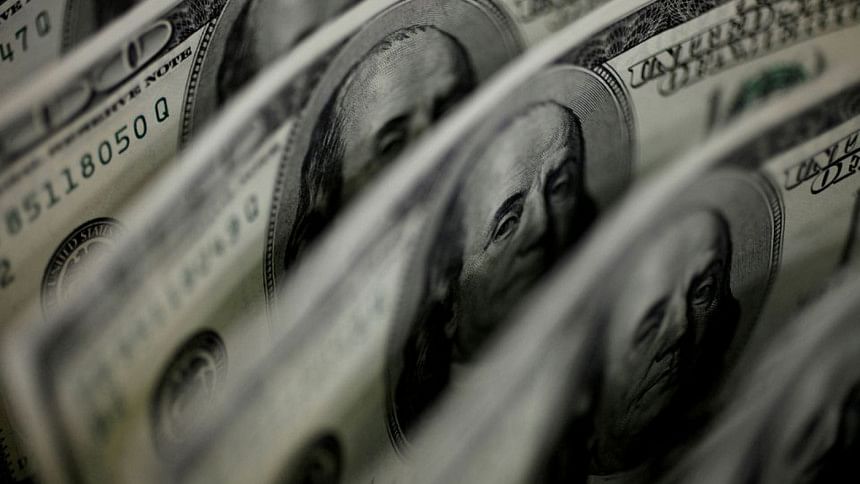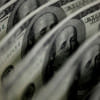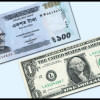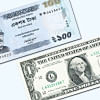Dollar holds near 6-month peak on global growth fears

The dollar held close to a six-month peak as jitters over China and global growth weighed on risk appetite, while the yen strengthened as Japan's top currency diplomat sent a warning about the currency after it earlier dropped to a 10-month low.
The yen strengthened by as much as 0.4 percent to 147.02 per US dollar after Japan's top currency diplomat, Masato Kanda, said they won't rule out options if speculative moves persist, the strongest warning since mid-August.
By 0813 GMT, it stood at 147.47 per dollar, compared with 147.82 earlier in the session, which was its lowest since Nov. 4.
The Asian currency has hovered around the key 145-per-dollar level for the past few weeks, leading traders to keep a wary eye on signs of intervention by Tokyo.
Kanda, Japan's vice-minister of finance for international affairs, has been the central figure in the country's efforts to stem the sharp decline of the yen since last year.
"The remarks suggest that intervention could be imminent with the yen in the intervention zone we saw last year," said Chris Turner, ING global head of markets and regional head of research for UK and CEE.
Japan intervened in currency markets 12 months ago when the dollar rose past 145 yen, prompting the Ministry of Finance to buy the yen and push the pair back to around 140 yen.
"I think we'll probably see intervention but that doesn't necessarily mean the underlying trend will turn around any time soon," Turner added, citing the ongoing strength in the U.S. dollar.
Against a basket of currencies, the dollar was at 104.77, not far off the six-month high of 104.90 touched on Tuesday. Economic data from China and Europe on Tuesday fanned some fears of slowing global growth, pushing investors to scramble for the greenback.
"Dollar strength remains the dominant play," said Christopher Wong, a currency strategist at OCBC in Singapore. Higher-for-longer U.S. interest rates and the relative U.S. growth resilience are supporting the greenback, Wong said.
Data from the euro zone and Britain on Tuesday showed a decline in business activity last month, while a private-sector survey showed China's services activity expanded at the slowest pace in eight months in August.
The euro was up 0.1 percent at $1.0733, having fallen to a three-month low of $1.0705 on Tuesday. Sterling was last at $1.2559. It also touched a three-month low of $1.25285 on Tuesday.
"There's been a hangover from soft PMIs particularly in the manufacturing space," ING's Turner said.
"The energy story, as we saw last summer, can also really hurt the euro, although it's not as bad now as it was back then."
Oil prices settled a ten-month high on Tuesday as Saudi Arabia and Russia extended supply cuts, although European natural gas prices are well below the peaks reached in August last year.
Federal Reserve Governor Christopher Waller said on Tuesday the latest round of economic data gives the U.S. central bank space to see if it needs to raise rates again and that he saw nothing that would force a move toward boosting the cost of short-term borrowing again.
Markets are pricing in a 93 percent chance of the Fed holding rates steady later this month and a 55 percent chance of no more hikes this year, according to the CME FedWatch tool.
Meanwhile, China's yuan fell to a 10-month low against the dollar on Wednesday before paring some losses as state banks stepped in to offer support.
The Australian dollar rose 0.1 percent $0.6385, after diving 1.3 percent on Tuesday following weak data from China and as the Reserve Bank of Australia kept rates on hold.

 For all latest news, follow The Daily Star's Google News channel.
For all latest news, follow The Daily Star's Google News channel. 








Comments